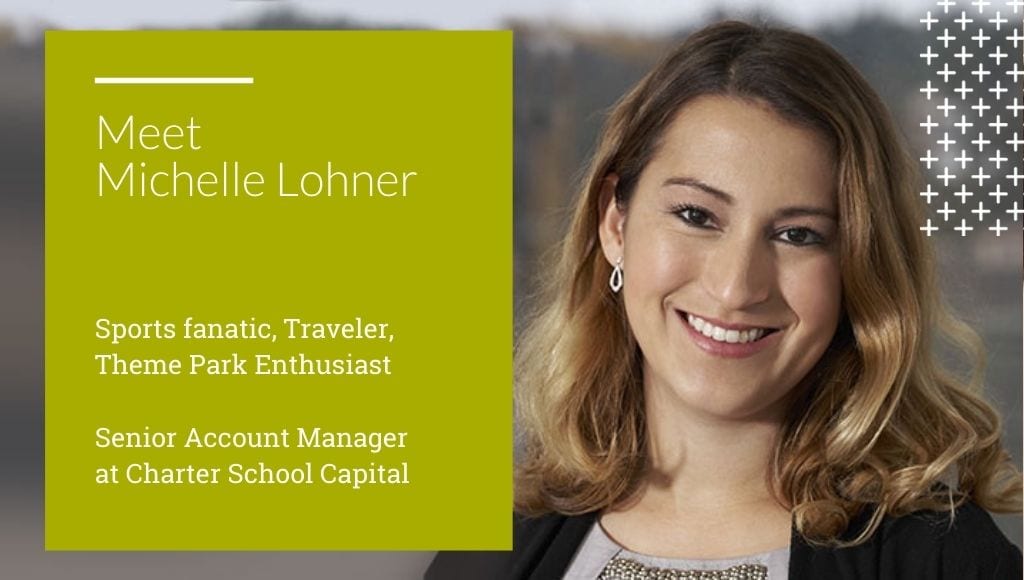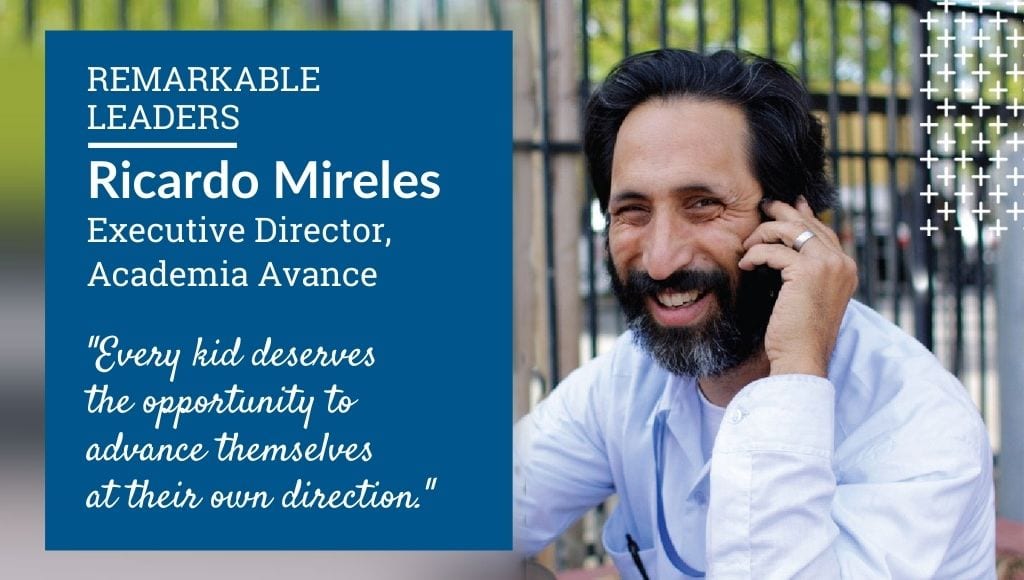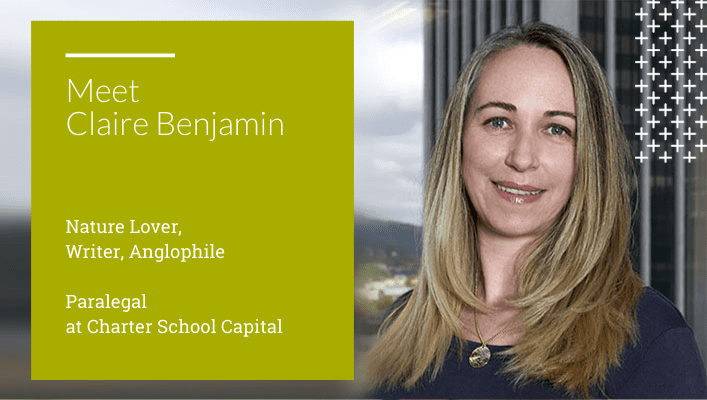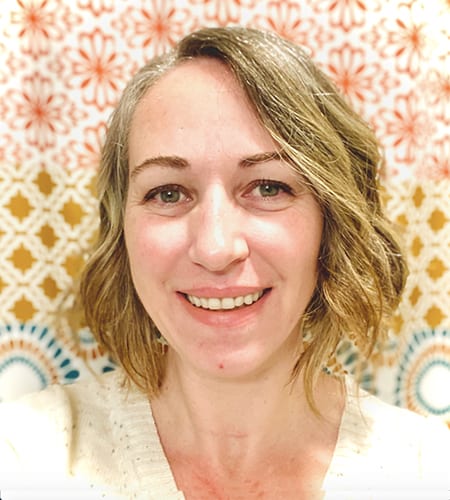Michelle is a California native who loves all things surrounding community, family, and the diversity that makes us unique. Born and raised in San Diego, she brings the sunshine anywhere she goes. Throughout her career timeline, she has managed to combine creativity and finance.
After almost seven years in banking, she wanted to develop a new skill set. Then, she discovered Charter School Capital, where she was able to work with communities and financial planning. Growing up with teachers in her family, she knew she wanted to give back to the educators that raised her someday. Now, after working with dozens of school leaders, community members, educators, and students, she has fulfilled that promise and continues to shine a light on accessible education.
How did you meet Charter School Capital?
After college, I made a huge change and decided to move from San Diego to Portland. In college, I started a small fashion business where I had my personal banker help me tremendously. I grew to admire them and pursued banking for six and a half years. In banking, I loved developing relationships with clients, connecting folks to resources, and the problem solving aspect of it.
After some time, I knew I wanted to create a larger impact through banking, so I started job hunting. On LinkedIn, I found Charter School Capital and scored an interview. For me, it was the perfect mix of finance, supporting education, and creating long lasting relationships.
How would you describe CSC and your position?
Charter School Capital is a national company that works with charter schools to meet their goals, problem solve through rough patches, and provide financial support.
As a senior account manager, I’ve been able to travel and work with charters and communities all across the United States for the past four years. Meeting numerous school leaders, educators, and students has allowed me to bridge connections, opportunities, and ultimately work firsthand with folks.
What brings you joy?
I love it when people are connected. Having people united in a grander scheme, whether for the magic of Disneyland, getting together to watch a Padres game, or connecting people to build community. The power of human connection is incredible to me.
When did you learn about this line of work? What called you to it?
Growing up, I had many teachers in my family, so I thought I was going to be a teacher for a long time. When I fell into business and finance, I knew the two had to come together at some point. Luckily, I fell into a job that had the perfect mix of both education and finance.
What has kept me here is making and building relationships with our clients and schools. I can meet these visionary leaders who work hard for their communities; whether it’s a school leader or back-office providers, there are so many people who are working to make a difference in the world. It’s their passion and stories that tend to drive me.
What did you want to be when you grew up?
Initially, I wanted to be a teacher, but then I discovered my love for fashion. My maiden name is Parsons, so I thought, “Hey, I should go to Parson’s School of Design in New York and have a fashion empire, this is going to be great!” Then I thought I should go to business school if I want to own my own business. So I pursued a degree in finance at the University of San Diego, where I found there was a lot of creativity in finance.
Over the years, what wisdom have you learned?
Life will take you in all types of directions. By staying true to yourself, you will grow and shape into the person you were meant to become.
From your position, how do you impact charter schools?
As Senior Account Manager, I’ve had the chance to travel, explore, and meet numerous clients, schools, and students firsthand. We provide schools with financial resources, but we often make the most significant impact by being a source for knowledge, expertise, or another perspective in the room. When I meet with schools, I tend to be a soundboard and on-site problem solver to work through any difficulty they face.
One of my favorite parts is when I go to my schools that I work with and see the students. I think, “This is what we’re doing. This is why it all matters.” Those students get to experience a quality education surrounded by leaders who are motivated and inspiring.
What gets you out of bed in the morning?
I’m grateful for the aspects of life, my husband, my family, the sunshine, the ability to go for a walk, living back home in California, and having a life that genuinely brings me joy.
What’s something about you that might be surprising?
I know three languages! Spanish, French, and English. I’m very passionate about being tri-lingual, traveling, and learning about different cultures. I had the chance to live and study in Paris for a short time; that experience helped shape who I am today.
If you could create a new class subject, what would it be?
“The Practical Basics of Life” where we would take a hands-on approach to the basics of personal finance, credit, and investing. Especially for those who are not pursuing a finance career, these necessary skills could help you throughout your life.
What piece of advice would you give to recent graduates?
Don’t give up! Sometimes your career path will take a turn, but do not let that discourage you. With hard work, authenticity, and kindness, people will be there to help you accomplish your goals.
In your view, what does the world need more of? Less of?
More compassion and understanding.
Less divisiveness.
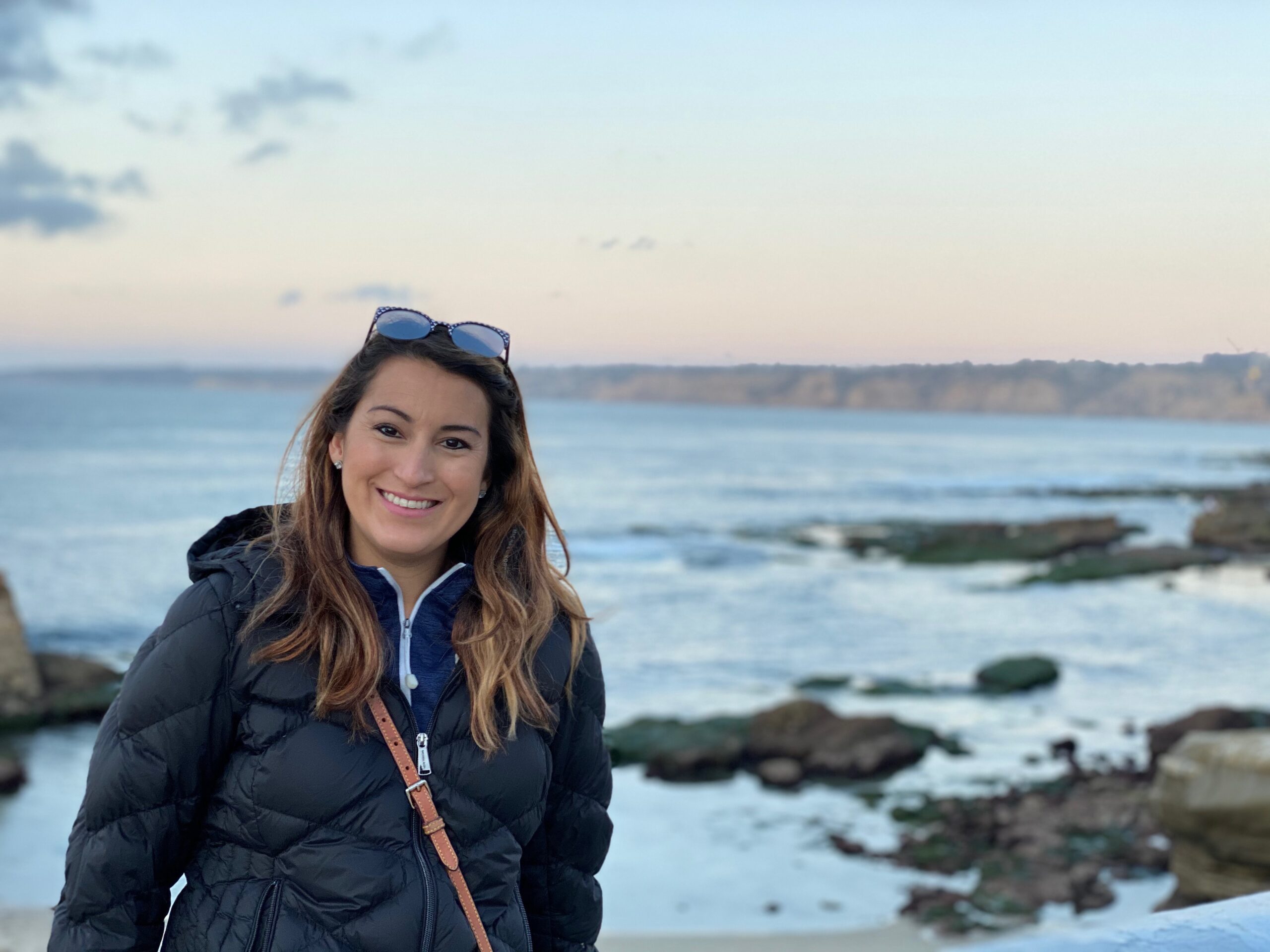 What do you hope to see for the Future of Charter Schools?
What do you hope to see for the Future of Charter Schools?
I hope charter schools become less politicized and seen as models for accessible education. We get to a place where public and charter schools can learn from each other and potentially support another, highlighting each other’s strengths.
What do you hope to see for the Future of CSC?
Expanding, both in proximity and relationships. Having a school partner in every state within the US would be a dream. Ensuring charter schools all across the US were being supported. We would be able to interact with a more extensive array of community members. That would drive our mission home, for me.
